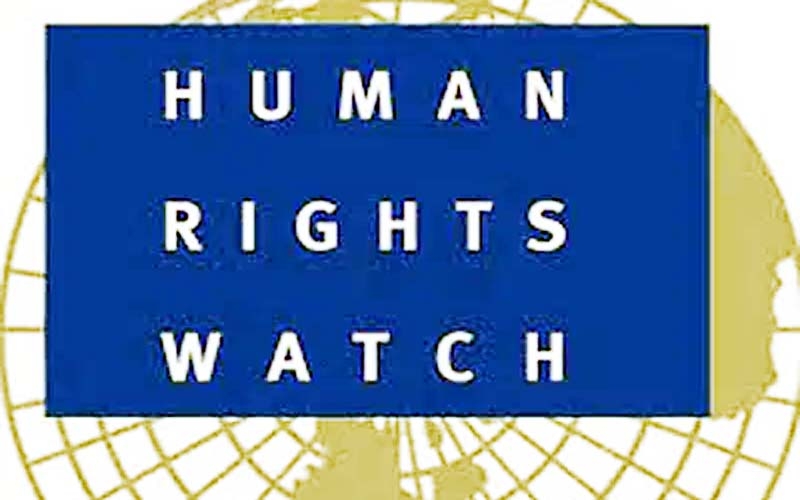- Militant Attacks Kill 33 in Balochistan; 92 Assailants Dead |
- Power generation at Payra Thermal Power Plant 1st unit starts after a month |
- Irregularities, injustice will no longer be accepted in politics: Jamaat Ameer |
- 2 arrested in Jhenaidah for allegedly selling madrasa student |
- Koko’s wife campaigns for Tarique in Dhaka-17 |
HRW Urges Deep Reforms in Bangladesh to Address Rights Abuses

Meenakshi Ganguly, Deputy Asia Director at Human Rights Watch (HRW), emphasized on Thursday that while Bangladesh’s interim government has made significant strides towards fostering a more democratic and rights-respecting future, lasting progress is contingent upon deep institutional reforms and continued international support.
“The interim government must take decisive steps to protect Rohingya refugees, support credible investigations into enforced disappearances, and ensure civilian oversight of security forces,” Ganguly stated.
The interim government, led by Nobel laureate Dr. Mohammed Yunus, has already established a commission to investigate cases of enforced disappearances and has pledged reforms to address the human rights abuses that occurred under former Prime Minister Sheikh Hasina’s authoritarian regime. However, HRW cautioned that these steps must be backed by sustained efforts to overhaul key institutions and strengthen accountability.
According to HRW, Bangladesh’s interim government should align reforms with international human rights standards, with assistance from the UN Office of the High Commissioner for Human Rights. It also called for the disbandment of the notorious Rapid Action Battalion (RAB), a security force with a history of human rights violations. Reforms should also focus on ensuring independent oversight and accountability of security forces, while prioritizing justice for victims of enforced disappearances and their families.
HRW also urged the interim government to allow human rights monitors unrestricted access to the Chittagong Hill Tracts and collaborate with the UN High Commissioner for Refugees to register Rohingya refugees. This would ensure they can access essential services such as protection, medical care, and food rations.
The report highlights the ongoing human rights challenges in Bangladesh, including the violent crackdown on student-led protests in July and August, which resulted in over 1,000 deaths and thousands of injuries due to the excessive use of force by security forces.
HRW’s World Report 2025, a comprehensive 546-page review of human rights practices across more than 100 countries, also outlines troubling trends in global governance. Executive Director Tirana Hassan’s introduction notes that in many countries, governments have escalated crackdowns on political opponents, activists, and journalists. Armed groups and state forces have unlawfully killed civilians, displaced populations, and obstructed access to humanitarian aid.
In Bangladesh, activists have expressed concern over ongoing abuses by security forces, including arbitrary arrests of opposition supporters and journalists, with many detainees being denied due process and access to legal counsel. While the interim government has acceded to the United Nations Convention on Enforced Disappearances, HRW pointed out that security forces have yet to release unlawfully detained individuals or provide clarity to their families.
Furthermore, the report highlights the precarious situation of the Rohingya refugees, who remain vulnerable to violence from armed groups and gangs. Unregistered refugees face heightened risks of hunger and are reluctant to seek healthcare due to fears of being forcibly repatriated to Myanmar.
HRW concluded that while Bangladesh has taken steps toward reform, it must address these deep-rooted issues with sustained commitment to human rights, rule of law, and justice for all.

